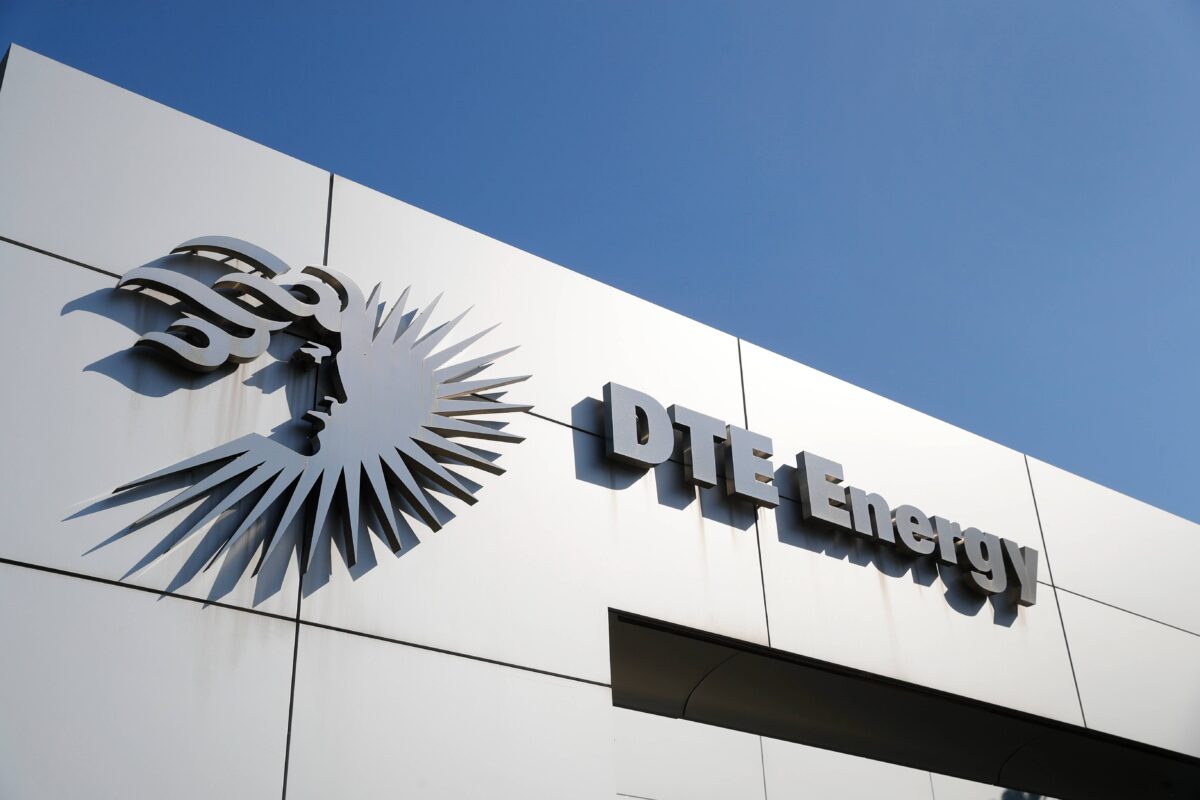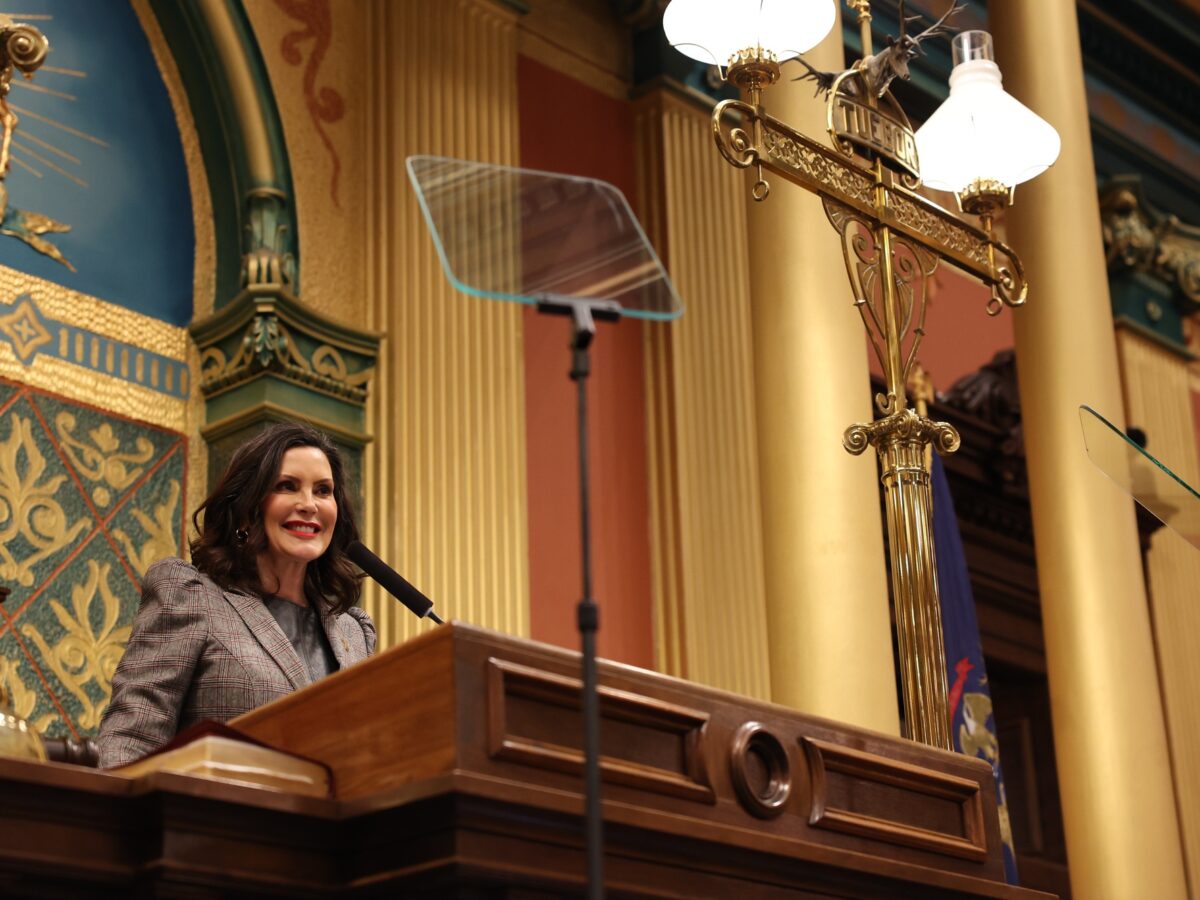Overview:
- A ratepayer advocacy group and Michigan's utilities regulator interpret power outage statistics differently.
- By excluding "major event days," such as ice storms, the state paints "rosier picture," says Citizens Utility Board executive director.
- The group says Michigan electricity customers paid some of the highest electricity rates in the country while receiving some of the worst service.
Michigan electric utility customers dealt with longer power outages in 2023 than any other state, and the state’s utilities rank near the bottom of the list nationwide on other reliability metrics, according to a new report.
In 2023, Michigan utilities took an average of 12 hours to restore power following an outage, according to the Citizens Utility Board of Michigan report, which is based on U.S. Energy Information Administration data.
The statistic is a measurement of the average time it takes the utility to restore a customer’s power to a customer after an outage begins, and is known as the Customer Average Interruption Duration Index.
“While Michigan was always lagging most other states, this year’s report has the worst rankings on reliability for Michigan utilities yet,” Amy Bandyk, the executive director of the Citizens Utility Board of Michigan, or CUB, said in a statement. The group has published the performance report since 2019, she said.
The second-worst state in the country was Maine, which took an average of a little more than nine hours to restore power. Neighboring Indiana and Ohio restored power in over five hours, and under five hours, respectively.
On Thursday, the Michigan Utility Public Service Commission, the state’s utilities regulator, ordered investor-owned utilities to credit an additional $2 to customers experiencing lengthy or repeated outages, increasing the automatic bill credit to $42.
During major outages, customers may need to be without power for four days to trigger the credit. Additional bill credits apply for subsequent days without power or if a customer experiences six outages lasting 5 or more minutes in a year.
Michigan utility regulator highlights ‘real progress’
CUB’s report focuses on 2023 because this is the most recent year for which complete federal data is available.
Michigan is 50th among the states and the District of Columbia in the System Average Interruption Duration Index, or SAIDI, which measures total outage duration for each customer served. Only Maine performed worse on this metric.
CUB’s report finds Michigan electricity customers paid some of the highest electricity rates in the country while receiving some of the worst service.
It warns that as the climate continues to warm, Michigan ratepayers will experience increasingly long outages unless utilities invest in adequate prevention and response measures.
The Michigan Public Service Commission, or MPSC, which regulates investor-owned power utilities, paints a vastly different picture of CUB’s findings, saying they show an improvement in reliability “when controlling for weather.”
“On both reliability and affordability, the data contained in the most recent CUB report show real progress is being made,” MPSC Chair Dan Scripps said in a statement.
CUB’s report shows a 23% reduction in power outages between 2019 and 2023 when “major event days” are excluded, according to a MPSC press release.
One major event in 2023: the ice storm that disconnected power to around 700,000 Michiganders and led to widespread calls for accountability, but few reforms.
‘A rosier picture of utility performance’
Bandyk told Planet Detroit the MPSC’s assessment ignores power outages caused by thunderstorms or blizzards and doesn’t reflect the experience of customers.
The MPSC references the SAIDI, minus major event days. In contrast, Bandyk’s evaluation focuses on SAIDI with major event days included, and the Customer Average Interruption Duration Index, or CAIDI, which measures average power restoration time.
“Customers do not get to exclude major event days from their lives — they must live with the long power outages that result,” Bandyk said.
Major event days account for the majority of outage time, and excluding them “gives a rosier picture of utility performance,” she said.
The difference in how CUB and the MPSC assess the data can be seen in the evaluation of outage minutes.
Minus major event days, the MPSC said outage minutes decreased from 211 to 162.3 between 2019 and 2023.
The CUB data shows the average outage times increased significantly during the same time frame when major event days are included, from 555 outage minutes in 2019 to 1,093 in 2023, or about three times the national average.
CUB’s report found that DTE Energy and Consumers Energy were the primary cause for the state’s poor performance, with the utilities having “some of the highest outage durations among all investor-owned utilities in the nation.”
Both utilities paid top executives bonuses based on well below average reliability in 2023, according to a 2024 MLive report.
A DTE spokesperson told Planet Detroit the company is building “the electric grid of the future that our customers demand and deserve.”
These efforts include deployment of smart grid technology, modernization of equipment, and tree-trimming, according to DTE. The spokesperson said the company is committed to reducing outages by 30% and cutting outage time in half by 2029.
Consumers spokesperson Brian Wheeler said the company is working on its reliability roadmap that includes utility pole replacements, tree trimming, and grid investment.
“We have mapped out the strategy and tactics that should continue leading to fewer and shorter power outages,” he said.
MORE UTILITIES COVERAGE FROM PLANET DETROIT
Transfer prices and your bill: What Michigan’s clean energy law means for you
In Michigan, the Public Service Commission’s deliberations on clean energy pricing and utility credits impact how quickly the state converts to renewable energy.
Michigan utility commissioner appointment sparks environmental justice concerns
Whitmer praises new MPSC appointee Shaquila Myers’ work on clean energy legislation, but ratepayer advocates say they fear utilities influenced governor’s decision.
DTE, Consumers could influence utility regulator appointment, advocacy groups warn
Environmental and ratepayer advocacy groups say Gov. Gretchen Whitmer’s expected decision not to reappoint Commissioner Alessandra Carreon is a setback for renewable energy and public engagement.
How Michigan’s utility prices rank nationally
In addition to faring poorly on reliability metrics, Michigan utilities charge ratepayers high prices for electricity, the CUB report found.
Michigan’s average price of residential electricity ranked 11th-highest, with customers paying 18.84 cents per kilowatt-hour, more than any other state in the Midwest. Ohio residential customers paid 15.38 per kWh and Indiana ratepayers paid 14.94 cents per kWh.
The MPSC said there was an overall decline in electricity costs for Michigan households, with the average yearly expense dropping from $1,530 in 2022 to $1,492 in 2023. Michigan electricity costs declined from 2.284% of income in 2022 to 2.157% in 2023, according to the MPSC.
The state utility regulator said that, in 2024, Consumers reported its average customer experienced 21 fewer power outage minutes than in the prior year. More than 93% of Consumers customers who experienced power outages had their service back on in less than 24 hours, an improvement from 87% in 2023, the MPSC said.
DTE reported its customers experienced a nearly 70% reduction in time without power from 2023 to 2024 due to grid improvements and better weather, the regulator said.
The CUB report comes as DTE and Consumers seek rate hikes with a combined total of more than $1 billion.
It also follows Michigan Gov. Gretchen Whitmer’s appointment of longtime political staffer Shaquila Myers to the MPSC, who served as chief of staff to former Michigan House Speaker Joe Tate (D-Detroit).
An account linked to Tate received $100,000 from a nonprofit led by DTE Energy executives in 2023, The Detroit News reported in December 2024.
Michigan Attorney General Dana Nessel commented on Myers’ appointment during an August interview with WDIV, saying it was a “concern” that Whitmer is replacing former Commissioner Alessandra Carreon, who “cared deeply about consumers and also about environmental concerns.”
Editor’s note: This story was updated with information on a Thursday vote by the Michigan Public Service Commission to order investor-owned utilities to credit an additional $2 to customers experiencing lengthy or repeated outages.
🗳️ Civic next steps: How you can get involved
Why it matters
⚡ How Michigan’s electric and gas utilities are regulated impacts customer bills, how much renewable energy generation companies build, and dynamics like energy efficiency programs for households. DTE and Consumers’ proposed rate increases, or “rate cases,” could total over $1 billion.
Who’s making civic decisions
🏛️ The Michigan Public Service Commission will decide on DTE Energy and Consumers Energy’s upcoming electricity rate cases, which will determine how much they can charge customers.
How to take civic action now
Under Michigan law, individual comments can’t be considered in MPSC decisions, unless they’re part of the work of an official intervenor. Yet there are methods for commenting on commission decisions, and we’ve compiled them below:
- 📅 Attend a MPSC meeting, virtually or in-person in Lansing. The next meeting is scheduled for Sept. 30.
- ✏️ Comment forms are linked here for DTE’s pending rate hike request and the Consumers rate case.
- 📩 Email, and include the case number (DTE: U-21860 and Consumers: U-21870): mpscedockets@michigan.gov
- ✉️ Write, and include the relevant case number:
Executive Secretary
Michigan Public Service Commission
P.O. Box 30221
Lansing, Michigan 48909 - 📣 Intervene Those wishing to become an official party to a case must file via e-docket or work with one of the parties intervening in DTE’s rate case or the Consumers case.
What to watch for next
🗓️ The MPSC has 10 months to issue a ruling on the DTE and Consumers rate cases, meaning decisions may not come until the end of 2025 or early 2026.
Civic impact
🌍 The Michigan Public Service Commission’s decisions affect the direction and future of utility service in the state, and the ratepayers who are impacted have multiple routes to engage with the regulator.





